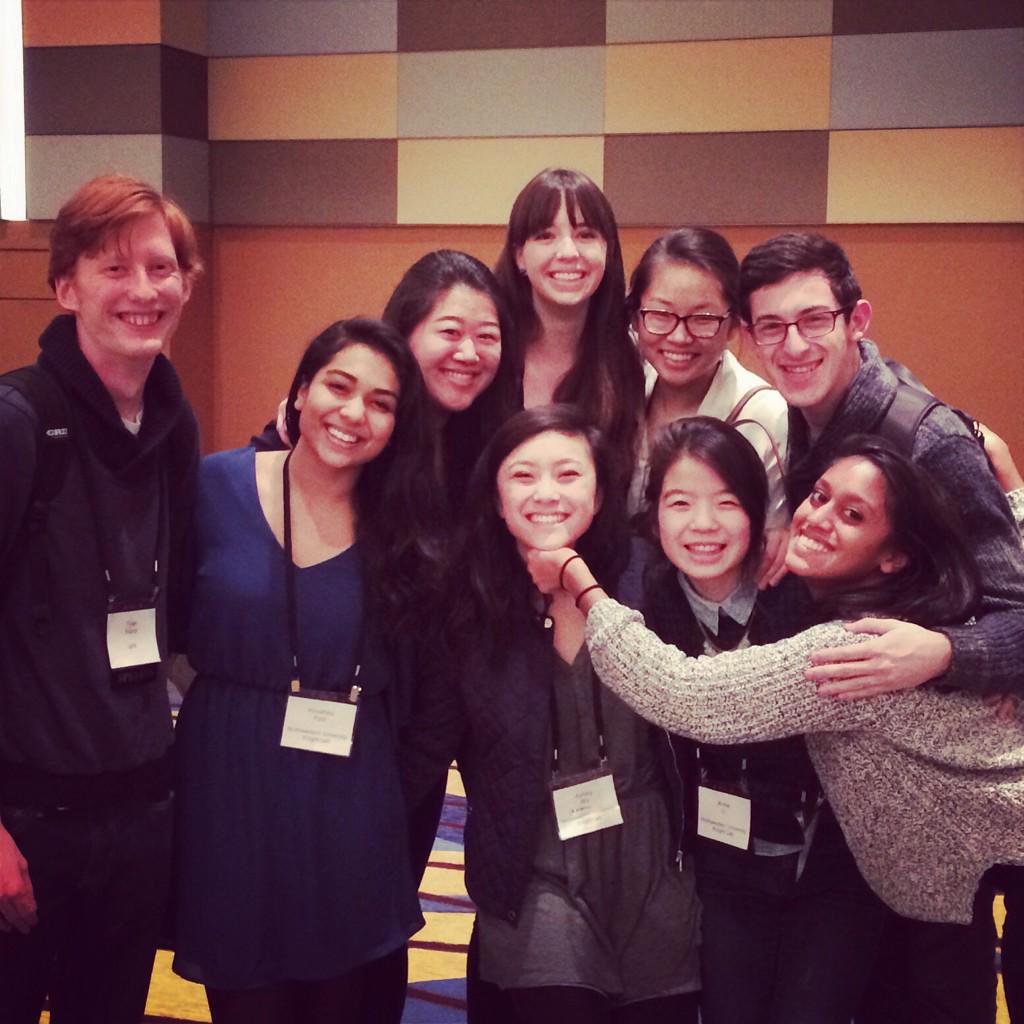
Until college, I never thought coding was for me. I never intended on learning about the “push” and “pull” of GitHub. I was perfectly content not knowing about the existence (and immense power) of the web inspector. I simply fell into it. It’s been exciting to learn and build new things, but part of “falling into” coding has meant that I can’t seem to shake that all too familiar feeling of imposter syndrome.
Earlier this quarter, I wrote up some of my thoughts on imposter syndrome: why we feel it and how we can adjust our mindset to combat it. I focused more on ways you can reframe what coding means to you or realizing the Venn diagram of what you know vs. what other people know. I think it’s important to maintain those mental models, but those realizations typically come much later. The most effective strategy to combat imposter syndrome is with community.
1. Speak up
I was always afraid to talk about my work because I never thought I had anything interesting to say. I would wait until some indeterminate date when I finally “knew enough” to share my experiences. Here at the Knight Lab, all student fellows are encouraged (and sometimes required) to speak up. Every person who went to MozFest was required to pitch a session (Mallory Busch led a hilarious and informative session on listicles). We had a few pitches for lightning talks in the top twenty at this year’s NICAR (Suyeon Son gave an amazing talk on translating visuals for the blind). In her post “2015 will be the year you pitch a lightning talk,” Sisi Wei said that even just pitching a talk “gives you exposure.” It forces you to put yourself out there and really engage with a community.
It’s also valuable to give talks a little more informally. Fellow Alex Duner started a speaker series at our Open Lab Hours this quarter where anyone can give a lightning talk on a topic of their choice. Ashley Wu taught us the command line using a Batman analogy. Aditi Bhandari gave a tutorial on GIFs. Your knowledge and experiences are valuable. By giving a talk, you will realize you have more to share than you think. No one is an imposter when each voice is heard and each experience is shared.
2. Collaborate on projects
I’m all about interdisciplinary teams and collaboration. Not only do I think it’s effective for producing great projects, but it’s also the most effective way to cope with imposter syndrome. It’s important to surround yourself with peers and role models because it puts your fears into perspective. Even though I’m pretty comfortable with HTML/CSS and JavaScript, while working with Ashley on a project involving scraping tweets, we both learned about structuring Python scripts and reading/writing JSON files. Over the summer, I worked with former student Rebecca Lai on a project and she taught me all the keyboard shortcuts I know. It’s great for demystifying the notion that “what you know” and “what other people know” are completely separate. By working on projects together, everyone is a teacher and everyone is a student.
3. Solicit feedback
I'm currently a teaching assistant for an interactive storytelling class where students and instructors frequently give feedback. The other day, I overheard one of the instructors talking to a team about their story design and said, “I’m not a designer but...” and proceeded to give amazing actionable feedback. We should just drop the first part of that sentence. All too often we discredit ourselves because we don’t think we fit a certain mold or have reached a certain level of expertise. This just feeds imposter syndrome. Don’t put a disclaimer on yourself or others.
I think it’s important to tap into the things that make people different. We have several student fellow projects in the lab and even though all of them have different focuses, we all openly talk about our work and ask each other for feedback. It doesn’t necessarily have to be technical to be helpful. Get people to comment on everything from design to narrative to usability. Even if you can’t peg yourself as a designer or developer just yet, still give your input. By creating environments of openness, we can help each other get over our fears that our contributions aren’t valuable. By discrediting that notion and amplifying the strengths of differences rather than the weakness of our differences, we can build a world without imposters.
About the author
Tagged





